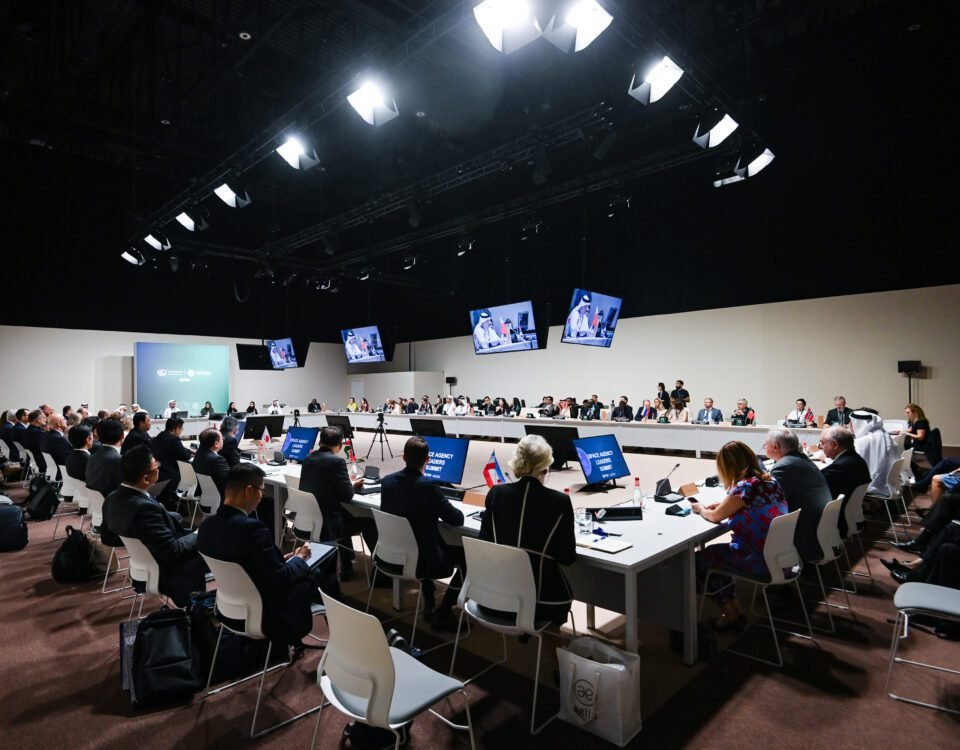


Cooking Made Easy: Top Kitchen Accessories For Efficiency
August 31, 2023


2023 Drone Camera Price Guide: Finding Your Perfect Aerial Companion
September 1, 2023In the remarkable journey that is space exploration, there are individuals whose names become synonymous with progress, inspiration, and pioneering spirit. Sunita Williams is one such name. With her astonishing achievements and unwavering determination, Williams has left an indelible mark on the world of space exploration. From Earth to the stars, her legacy inspires us all to reach for new heights and embrace the infinite possibilities that lie beyond our planet.
Early Life and Education
Childhood and Family
Sunita Williams was born on September 19, 1965, in Euclid, Ohio, to Dr. Deepak Pandya and Bonnie Pandya. Growing up in a multicultural household, Sunita was exposed to both Indian and American cultures, which played a significant role in shaping her unique perspective on life. She has fond memories of spending time with her older brother, Dinesh, and their parents, who always encouraged their children to dream big and pursue their passions.
Educational Background
Sunita’s passion for exploration and knowledge led her to pursue a Bachelor of Science degree in Physical Science from the United States Naval Academy, where she graduated in 1987. After completing her undergraduate studies, she went on to earn a Master of Science degree in Engineering Management from Florida Institute of Technology in 1995. Sunita continued her educational journey by entering the United States Naval Test Pilot School, graduating from there in 1993. Her academic and professional achievements were a testament to her determination and commitment to excellence.
NASA Career
Selection and Training
Sunita Williams was selected as a NASA astronaut candidate in June 1998. Her exceptional qualifications, along with her drive and leadership skills, made her stand out among the other candidates. Throughout her training at the Johnson Space Center, Sunita underwent rigorous preparation for space missions, including survival training, flight training, and underwater activities to simulate microgravity conditions. Her ability to adapt to various challenges and her unwavering dedication to her training set her apart as a future space pioneer.
Space Missions
During her NASA career, Sunita Williams took part in two space missions that further solidified her reputation as a remarkable astronaut. In 2006, she embarked on her first space mission, serving as Flight Engineer on board the International Space Station (ISS). She spent a total of 195 days living and working in space, conducting various experiments and maintenance tasks. Her second mission in 2012 saw her take command of the ISS, making her the second woman and the first person of Indian descent to achieve this milestone. Sunita’s contributions to space exploration during these missions were immeasurable, inspiring awe and admiration for her achievements.
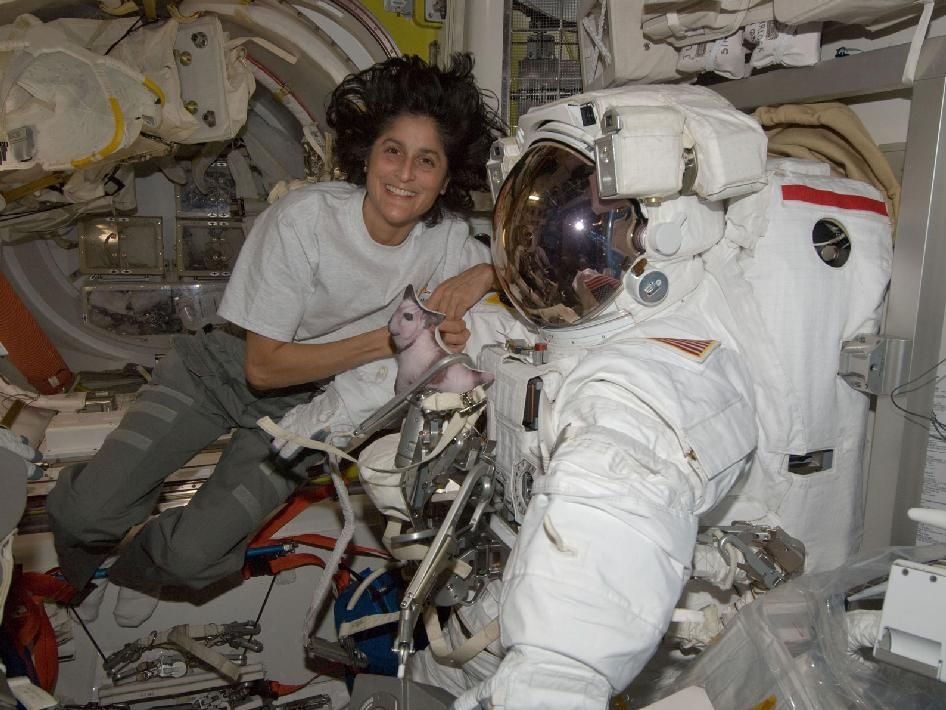

Living in Space
Life on the International Space Station
Life on the International Space Station presented Sunita Williams with a unique set of challenges and experiences. While aboard the ISS, she had to adapt to microgravity and learn to carry out daily tasks in a weightless environment. From eating and sleeping to exercising and working, everything required a different approach due to the absence of gravity. Sunita and her fellow astronauts formed a close-knit community, relying on each other for support and camaraderie. Together, they created a home away from home in the vast expanse of space.
Challenges and Adaptation in Microgravity
Living in microgravity was not without its difficulties. The human body undergoes numerous physiological changes in this environment, leading to muscle atrophy, bone density loss, and cardiovascular deconditioning. Sunita Williams and her crewmates actively worked to combat these challenges through constant exercise and medical interventions. They conducted research to better understand the effects of microgravity on the human body, helping scientists develop effective countermeasures for future long-duration space missions. Their resilience and determination demonstrated the boundless potential of human adaptation in the face of extreme conditions.
Record-Breaking Achievements
Longest Single Space Flight by a Woman
In 2012, during her second mission on the ISS, Sunita Williams set a new record for the longest single space flight by a woman. Spending a total of 195 days in space, she surpassed the previous record held by Shannon Lucid. Sunita’s achievement not only showcased her endurance and fortitude but also broke traditional gender barriers, inspiring women all around the world to pursue careers in STEM fields and believe in their ability to reach for the stars.
Total Time Spent in Space
Sunita Williams’ cumulative time spent in space is a testament to her dedication and commitment to space exploration. Throughout her two missions, she accumulated an impressive total of 322 days, 17 hours, and 41 minutes in space. Her extensive experience allowed her to gain invaluable insights into the challenges and rewards of long-duration space travel, providing invaluable data for future space missions. Sunita’s endurance and perseverance have paved the way for astronauts to venture further into the cosmos.
Spacewalk Records
Sunita Williams holds notable records for extravehicular activities (EVAs), or spacewalks, during her time on the ISS. She conducted a total of seven spacewalks, accumulating a cumulative duration of 50 hours and 40 minutes spent outside the safety of the space station. Her expertise and confidence in performing these critical tasks showcased her exceptional skills as an astronaut. Sunita’s achievements continue to inspire future generations of space explorers to push the boundaries of human capability.
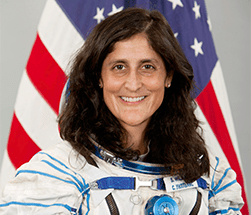

Contributions to Space Science
Experiments Conducted Aboard the ISS
Throughout her time on the International Space Station, Sunita Williams actively participated in conducting various experiments that expanded our understanding of microgravity’s effects on the human body and advanced space science. These experiments focused on diverse areas such as cellular biology, physics, materials science, and Earth observation. Sunita’s contributions to scientific research in space have paved the way for groundbreaking discoveries and innovations that have the potential to improve life on Earth and propel us further into the cosmos.
Research on Human Physiology and Microgravity
Sunita Williams played a crucial role in advancing our knowledge of human physiology and the effects of microgravity on the body. By using herself as a subject during experiments, she helped scientists gain insights into bone and muscle health, cardiovascular function, and neurovestibular adaptation in space. This research is vital for developing strategies to mitigate the negative effects of microgravity during long-duration space missions, ensuring the well-being and safety of astronauts in the future. Sunita’s dedication to advancing scientific understanding sets an example for future astronauts to prioritize research and exploration.
Inspiring Future Astronauts
Outreach and Education Initiatives
Sunita Williams has been actively involved in numerous outreach and education initiatives aimed at inspiring the next generation of astronauts and scientists. Through her participation in public events, school visits, and virtual classrooms, she shares her passion for space exploration and encourages young minds to pursue STEM fields. Sunita firmly believes that by nurturing the curiosity and ambition of young students, we can cultivate a new generation of explorers who will continue to push the boundaries of human knowledge.
Motivating Girls in STEM
As a trailblazer in the field of space exploration, Sunita Williams recognizes the importance of empowering girls in STEM (Science, Technology, Engineering, and Mathematics) disciplines. She actively engages with organizations and schools to promote gender equality and provide opportunities for girls to explore their interests in STEM. By sharing her experiences and success as a female astronaut, Sunita inspires young girls to overcome societal barriers and pursue their dreams without limitation.
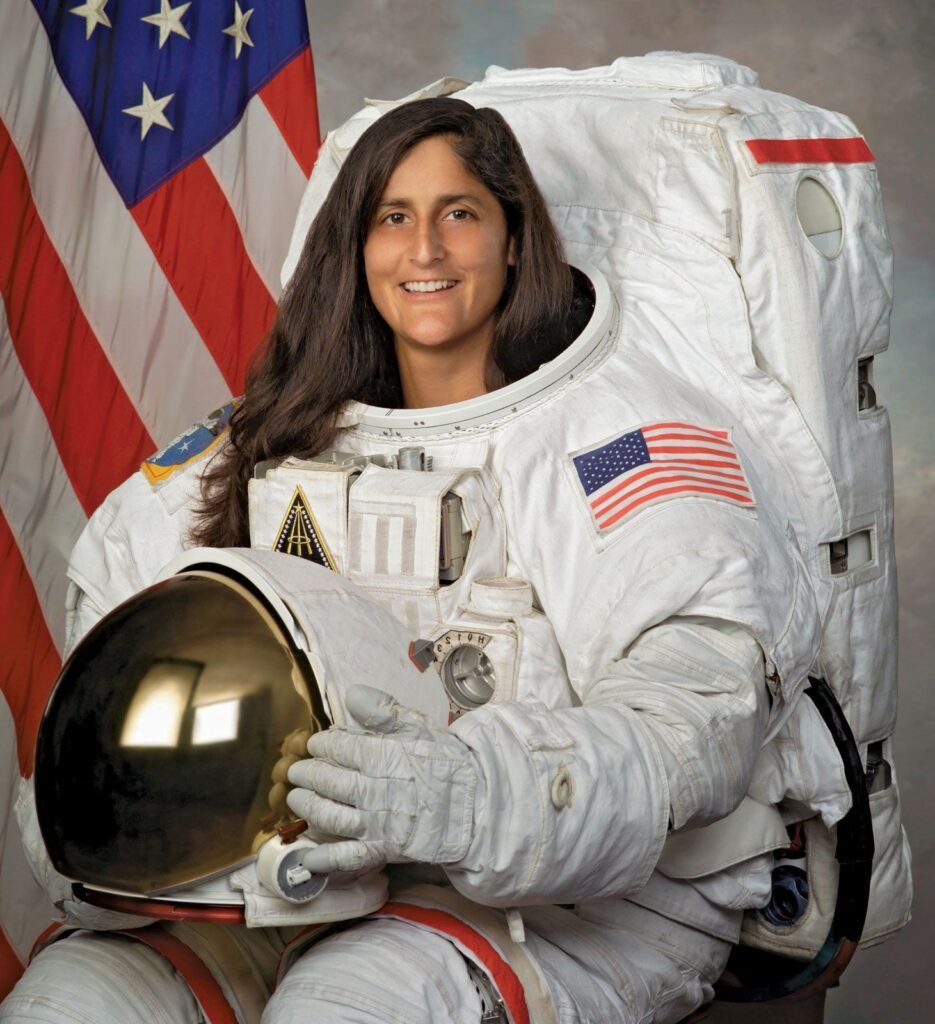

Personal Challenges and Resilience
Overcoming Physical and Emotional Obstacles
Like any journey of exploration, Sunita Williams’ path to space was not without its fair share of challenges. Throughout her career, she faced physical and emotional obstacles that required resilience and determination to overcome. From the demanding physical training to the challenges of living in a confined space, Sunita’s tenacity allowed her to adapt and thrive in even the most difficult circumstances. Her unwavering spirit inspires us all to push beyond our own limits and embrace the unknown.
Mental Health Advocacy
Sunita Williams understands the importance of mental health in the demanding and isolating environment of space. She has been an advocate for prioritizing mental well-being and stress management during long-duration space missions. Through her advocacy, she highlights the need for comprehensive psychological support for astronauts and emphasizes the significance of maintaining a healthy mind while exploring the frontiers of space. Sunita’s efforts contribute to the overall well-being and success of future astronauts embarking on extended missions.
Impact on Indian-Americans
Proud Representation of Indian Heritage
As the first person of Indian descent to command the International Space Station, Sunita Williams has become an iconic figure for Indian-Americans. Her achievements serve as a source of immense pride and inspiration for the Indian diaspora worldwide. Sunita’s success not only shattered barriers but also showcased the rich diversity and talent within the Indian-American community. Her legacy stands as a testament to the indomitable spirit and potential of individuals from all backgrounds.
Inspiring the Indian-American Community
Sunita Williams’ remarkable journey to the stars has ignited a spark of inspiration within the Indian-American community. Her story resonates deeply with aspiring young individuals, particularly those of Indian heritage, who dream of pursuing careers in space exploration, science, and technology. By breaking down barriers and driving a sense of belonging and representation, Sunita has encouraged countless Indian-Americans to aim for the stars and reach for their dreams, knowing that the sky is no longer the limit.
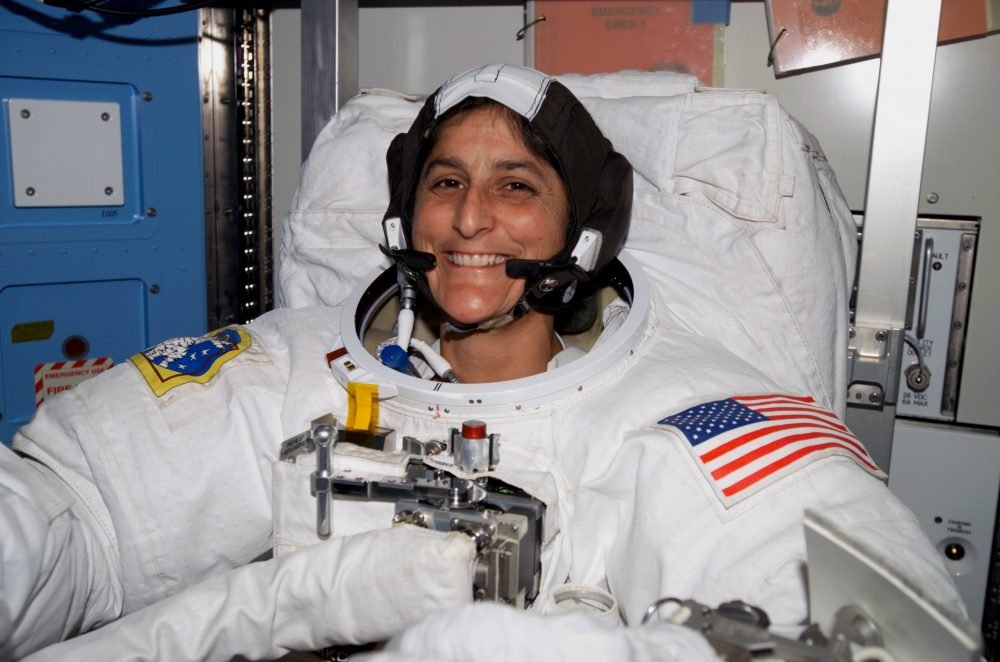

Vision for Space Exploration
Advocacy for Deep Space Exploration
Sunita Williams has been a vocal advocate for pushing the boundaries of human exploration further into deep space. She firmly believes that venturing beyond low Earth orbit is essential for expanding our understanding of the universe and our place within it. Sunita advocates for collaboration among nations and organizations to embark on ambitious missions to Mars, the Moon, and beyond. Her vision for space exploration serves as an inspiration for the global scientific community to unite and strive for new frontiers.
Future Missions and Collaborations
As space exploration continues to evolve, Sunita Williams envisions future missions and collaborations that will further expand our horizons. By leveraging advancements in technology and international cooperation, she envisages a world where humans will explore distant planets and establish sustainable habitats on extraterrestrial bodies. Sunita’s vision inspires us to look beyond our planet and work collectively towards a future where the stars are not just distant specks of light but tangible destinations for humanity.
Legacy and Recognition
Awards and Honors
Sunita Williams’ contributions to space exploration have earned her numerous awards and honors throughout her career. She has been recognized for her exceptional leadership, scientific research, and groundbreaking achievements. Some of the accolades she has received include the NASA Outstanding Leadership Medal, the Defense Superior Service Medal, and the Yuri Gagarin Gold Medal. These awards not only celebrate Sunita’s remarkable accomplishments but also serve as a reminder of the impact she has had on the world of space exploration.
Inspiring the Next Generation
Sunita Williams’ enduring legacy is not measured solely by her remarkable achievements but also by the inspiration she continues to instill in future generations of explorers. Her determination, resilience, and unwavering pursuit of knowledge inspire countless young minds to dream big and reach for the stars. Sunita’s story proves that with dedication, perseverance, and a passion for discovery, the impossible becomes possible. By inspiring the next generation, she ensures that the legacy of human space exploration will continue to thrive for years to come.
In conclusion, Sunita Williams’ legacy in space exploration is a testament to the power of ambition, determination, and the human spirit. From her early life and education to her illustrious NASA career and groundbreaking achievements, Sunita has left an indelible mark on the world of space exploration. Through her contributions to science, outreach, and advocacy, she has inspired and empowered individuals from all walks of life to embrace their own dreams and pursue them with passion. Sunita Williams’ vision for the future of space exploration serves as a guidepost for the next generation of astronauts and scientists, encouraging them to push the boundaries of what is known and explore the vast expanse of the universe. Her legacy will forever inspire us to reach for the stars and continue the journey from Earth to the stars.



